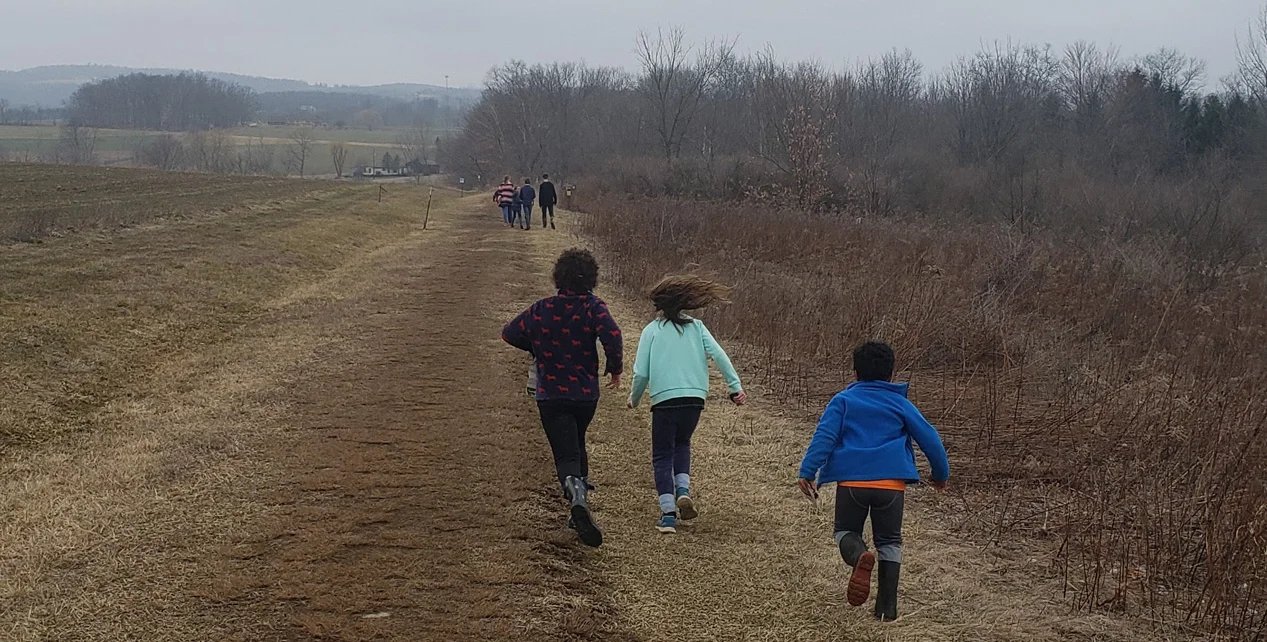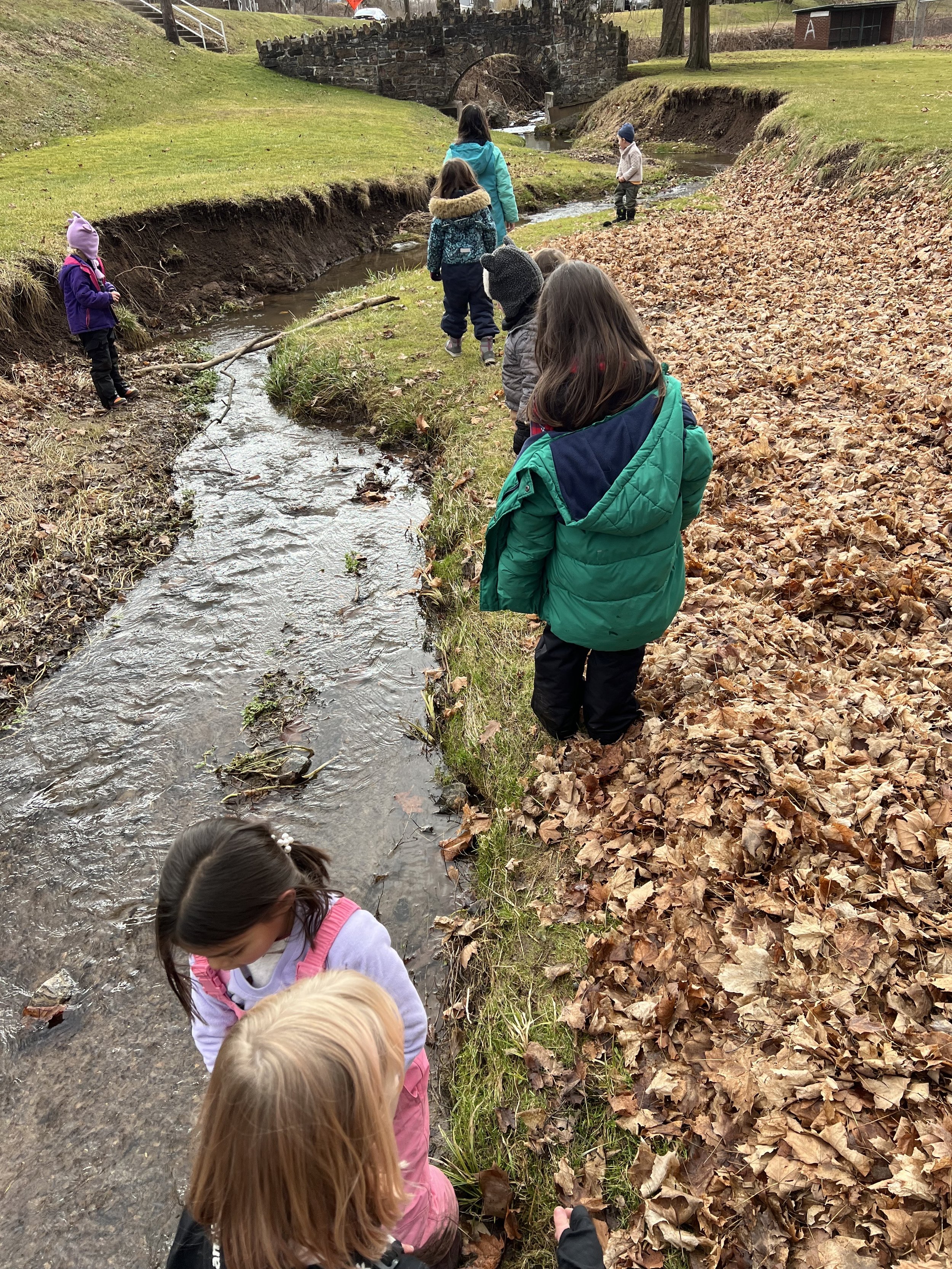
Nature in Education
"Passion is lifted from the earth itself by the muddy hands of the young; it travels along the grass-stained sleeves to the heart. If we are going to save environmentalism and the environment, we must also save an endangered indicator species; the child in nature."
— Richard Louv
Nurture in Nature
At Fern Hill, we believe that nature in education is an essential component of a whole-child approach to learning. Research studies link outdoor learning to increased performance on standardized testing, improved in-school behavior, positive attitudes about school in general, and improved attendance. This is in addition to the health benefits of intentional immersion in nature for children and adults. Children who spend a significant amount of time in nature have less risk of childhood obesity, their fine and gross motor skills are more developed, and eyesight is increased.
Outdoor learning allows children increased opportunity to develop social and emotional skills like problem solving, confidence, independence, risk management, and resilience. Navigating a downed tree in the forest may begin as a "sit and scooch" situation and develop into a fully-balanced stride from one end to another. Negotiating the process of increasing ability in a physically risky opportunity directly translates to confidence in taking risks in all other learning forums. Children who learn outdoors are encouraged to think critically about risks and benefits of their actions, to overcome adversities and to build resilience in a physically and emotionally safe manner.
Finally, children who regularly interact with nature are increasingly aware of the beauty and resources that the earth has to offer. Nurturing a relationship with the outdoors early in life grounds children in negotiating the environmental and social challenges we face as a society and for the personal challenges they face as individuals.

